Vietnam – Australia: Unprecedented things in history
“It can be said that the three sides of Vietnam, Australia and ASEAN share more and more similar views, overlapping interests and increasingly compatible policies” – Dr. Tran Viet Thai.
Editor's note:Prime Minister Nguyen Xuan Phuc has just successfully concludedvisit to Australia and attend the ASEAN-Australia Special Summit.Looking back on the visit, Vietnam Weekly had a conversation with Dr. Tran Viet Thai, Deputy Director of the Institute for Strategic Studies, Diplomatic Academy.
According to Mr. Tran Viet Thai, the Prime Minister's visit this time has many new things, both bilaterally and multilaterally. First is the ASEAN-Australia Special Summit, this is an unprecedented event, the first time Australia has organized it. And in the bilateral channel is the upgrading of relations with Australia to a Strategic Partnership. It is necessary to look at the Vietnam-Australia relationship as well as the ASEAN-Australia multilateral relationship in a large, long-term perspective.
For the ASEAN-Australia Special Summit, it can be said that the most important point expressed in the joint statement is to deepen the bilateral relationship and to cooperate substantially. Up to now, this has been a relationship of more dialogue, cooperation has stopped mainly with Australia helping in one direction.
|
| The ASEAN-Australia Special Summit is a milestone |
Australia clearly sees the position of Vietnam and ASEAN
What do you think prompted Australia to proactively upgrade relations at this time?
First of all, it must be said that the current situation in Asia-Pacific is changing a lot. In which, ASEAN, especially Vietnam, has a lot of potential and dynamism and is emerging as a new center of the region. Vietnam is becoming an attractive destination for many businesses, with very favorable policies of innovation, multilateralization, diversification, and international integration.
But not only that, but importantly, ASEAN and Vietnam are both key points for major countries to aim to establish relations. Most recently, South Korea has just launched its New Southern Policy, with South Korean President Moon Jae In about to visit Vietnam. The geopolitical concept of “Indo-Pacific” was first included in the US National Security Strategy under President Donald Trump, and has been actively promoted by Japanese Prime Minister Shinzo Abe in recent years.
It can be said that Australia's initiative to upgrade relations is due to seeing the potential, the changing position and role of ASEAN countries.
In the past, they looked at China a lot – a big market with huge potential. It is still the same now, but in recent years, many Western governments in general, and Australia in particular, have become increasingly disappointed with the policies of this country. China's business conditions for foreigners are increasingly tightened, making it more difficult to do business. And the political environment is also changing more and more, changing unfavorably for business, especially regulations, for example on the internet, taxes, etc.
Meanwhile, Vietnam and ASEAN are increasingly opening up to integration. Some Australian businesses have told me that it is time to look beyond China.
In your opinion, what is the focus of upgrading this relationship?
There is a lot of content in the joint statement, but in general there are 3 key areas.
The firstis to share a vision of common interests and values. Currently, Australia and Vietnam have more and more overlapping and intertwined interests. Their viewpoints and stances are increasingly similar. For example, Vietnam and ASEAN both want this region to be an open, peaceful region based on international cooperation, and Australia also wants the same. It can be said that the three sides of Vietnam, Australia and ASEAN share more and more similar viewpoints, overlapping interests and increasingly compatible policies.
Mondayis to strengthen political relations, diplomatic trust. In upgrading relations, the first thing is that high-level exchanges will be more frequent. In addition, mechanisms, for example, mutual consultation, enhancing mutual understanding of policies will increase, dialogue, consultation, and exchanges at all levels will increase. From there, frameworks will open up for mechanisms, such as localities, to cooperate more smoothly and conveniently.
Tuesdayis an economic and trade relationship, the two sides pledged to create favorable conditions to promote economy - trade - investment - tourism. We expect there will be a wave of Australian businesses investing in Vietnam. Australia has special advantages in agriculture (such as dairy cows, milk processing technology), mining (input materials for production such as iron ore, coal... that Vietnam needs).
An important point here is that Australia is a member of the Comprehensive and Progressive Agreement for Trans-Pacific Partnership (CPTPP). Under the provisions of the CPTPP, when member countries have economic and trade relations with each other, there are regulations on origin. Promoting purchases and economic and trade exchanges with Australia will be more favorable than buying from outside countries, because it is considered to be originating from within the bloc. At that time, taxes will be preferential, depending on each industry, but will be minimized according to general regulations.
With this upgraded relationship, with the regulations in bilateral as well as in ASEAN, and in the upcoming CPTPP, what can we expect?
The firstis a wave of shifting economic, trade, investment, and even tourism relations in the direction of strengthening bilateral relations and benefiting both sides. Of course, upgrading relations, signing is one thing, but when it comes to implementation, there is still a process.
Next pointPeople-to-people exchanges are very important. The strategic partnership framework does not only include state-to-state. The process of building the ASEAN community has been people-centered, and so is the future Vietnam-Australia relationship. Currently, in the trend of Vietnam increasingly opening up to integration, more and more Vietnamese people are traveling abroad, and we are also welcoming more and more waves of investment, tourism, and visiting relatives. People-to-people exchanges between Vietnam and Australia will certainly be strengthened.
First is education. Australia is one of Vietnam's major education markets. When Australia loosens up and provides more scholarship programs for ASEAN countries, the opportunities for Vietnamese students to study abroad will certainly increase. However, we need to pay attention to focusing on technical training, especially technology, new industries in which Australia has strengths, such as biopharmaceuticals, agricultural technology, etc.
Tourism is also boosted, with Australia being added to the list of countries whose citizens are eligible for a pilot e-visa under Resolution 124 of the Vietnamese Government.
Next are mechanisms for localities to promote cooperation, because each locality has its own strengths, for example, the eastern region of Australia has strengths in exploiting and processing seafood.
|
| Prime Minister Nguyen Xuan Phuc and Australian Prime Minister Malcolm Turnbull signed a Joint Statement on establishing the Vietnam-Australia Strategic Partnership. Photo: Pham Tuan |
With a framework, trust will grow.
Could you analyze a little about the defense cooperation highlights in the upcoming strategic partnership between the two countries?
Vietnam-Australia defense and security cooperation is currently an important component and will make progress. First of all, it is the enhancement of training. Australia has been supporting Vietnam in English training, and has begun long-term cooperation in training command officers, but the focus must be on maritime security and peacekeeping. Australia has many strengths, but in reality, Vietnam-Australia cooperation is not much due to the two different political systems, including the different operations of the Australian military apparatus, weapons, and strategic thinking.
“Strategic relations” will be the framework for the armed forces of the two countries to come closer together and thus be more beneficial, moving towards expanding into areas such as naval, intelligence and air force exchanges. With the framework, trust will increase. Of course, we will also have to adjust in cooperation with Australia in particular and other countries in general. We are integrating, many things must be gradually adapted, cannot be done immediately, cannot be rushed.
One aspect that many people are interested in is what is Australia's role between ASEAN and China?
China is a factor for Australia to get closer to ASEAN, China's rise has the risk of impacting the region, changing the regional order, which makes Australia worried, but not all. Australia is most worried not about China but the "unstable" policy of Donald Trump. This is related to vital allies, the core of Australia's interests.
It must be affirmed that Australia is not promoting relations with ASEAN to oppose China. If Australia reveals that, ASEAN will immediately distance itself. ASEAN needs Australia because it needs an open region, and does not want any country to dominate the region. ASEAN needs an open balance based on international law and standards. Australia is a factor that can help ASEAN in that.
Australia came to ASEAN because of the visible benefits as I analyzed above. ASEAN's market is very large, and is integrating, in 20 years it will become the 4th largest in the world.
In short, there are several factors at play here. First, ASEAN itself is attractive. Second, the situation is changing too quickly, and it is the US that is making Australia worried. China is only a third or fourth factor.
In that context, what is our message? It is to “go two ways”, through the ASEAN multilateral channel and through the bilateral channel. Vietnam’s goal is to work with other countries to build an open, peaceful, stable, and developed Southeast Asia based on international law and standards. Australia fully shares that, whether bilaterally or multilaterally, which is in line with Vietnam’s national interests and foreign policy, security and defense strategy.
Thanks for sharing.

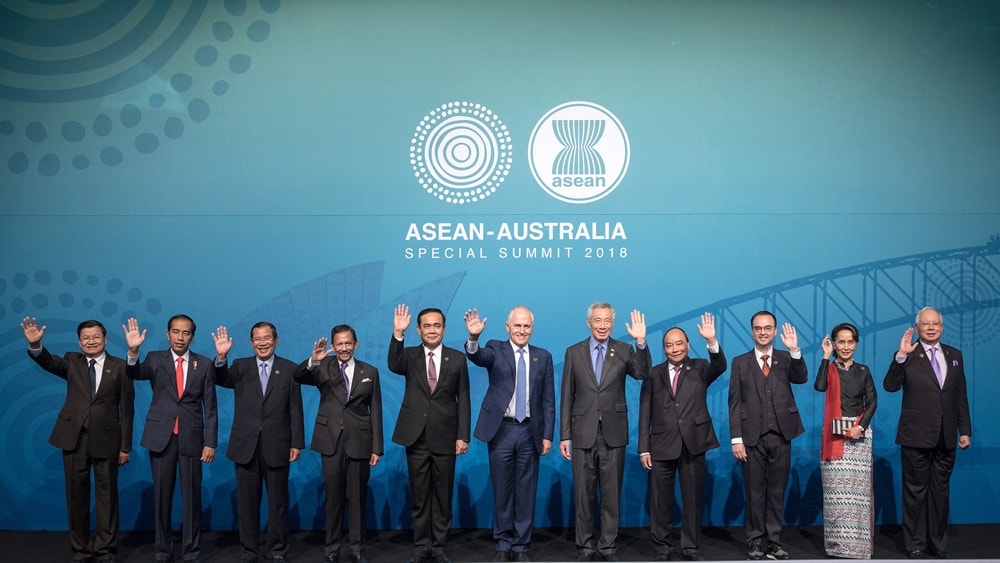
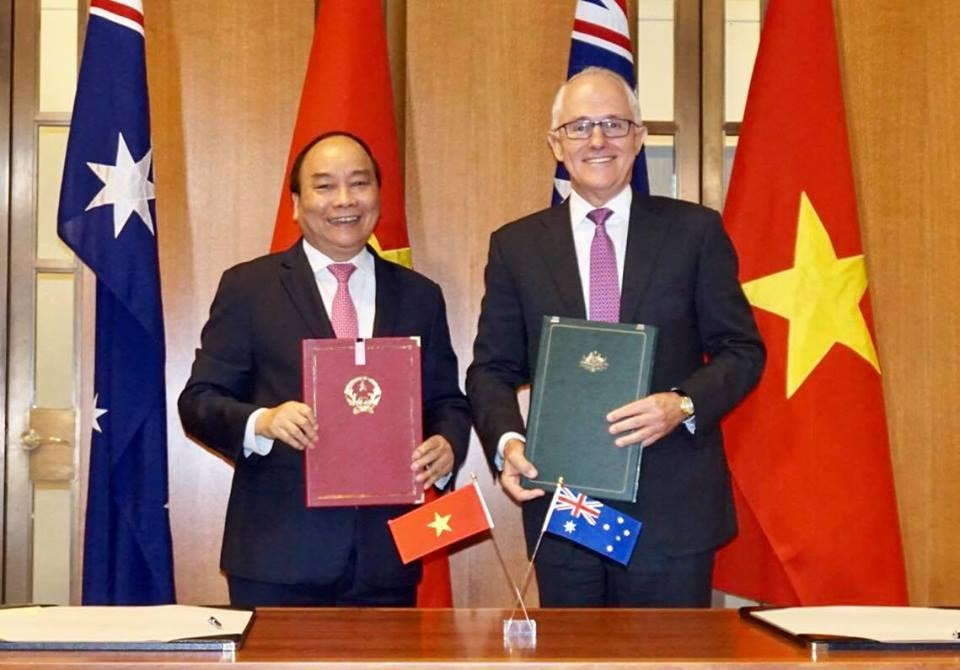
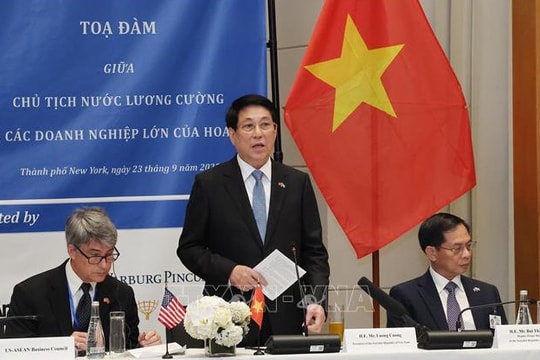
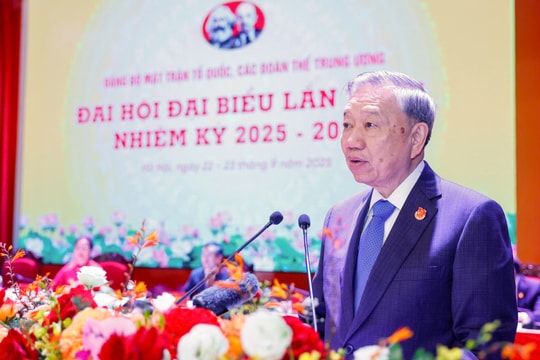
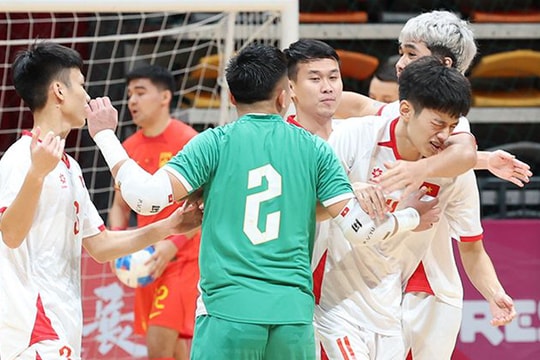
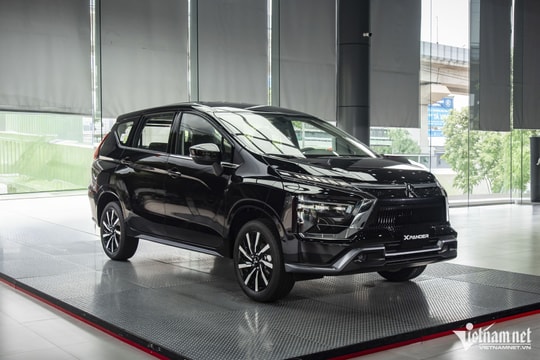
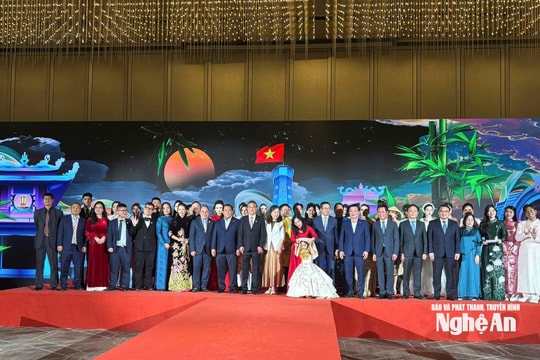
.jpg)
